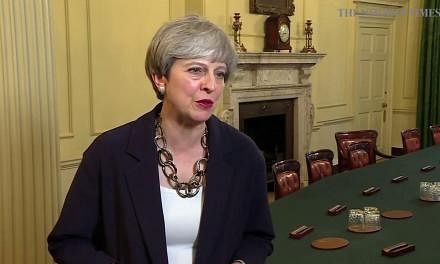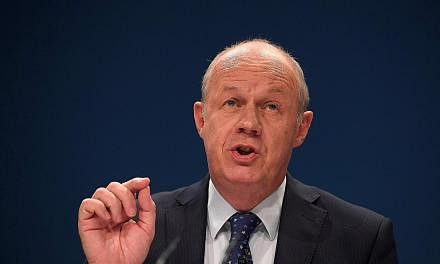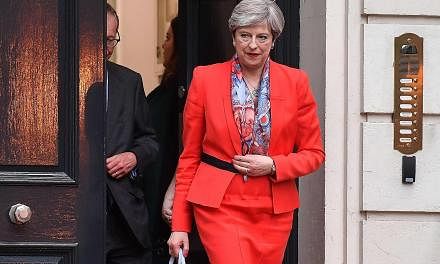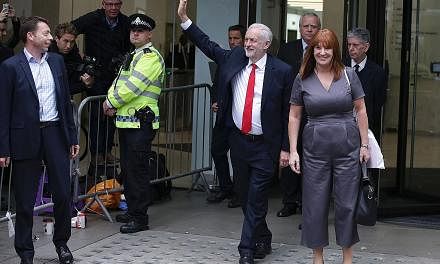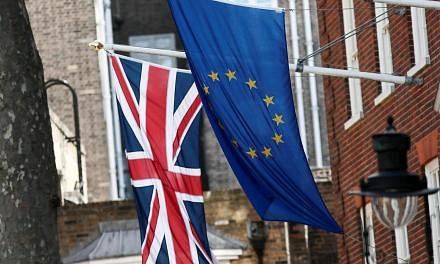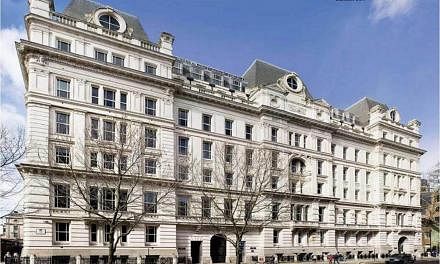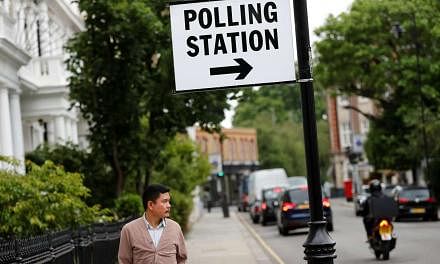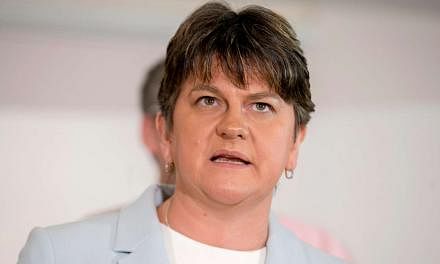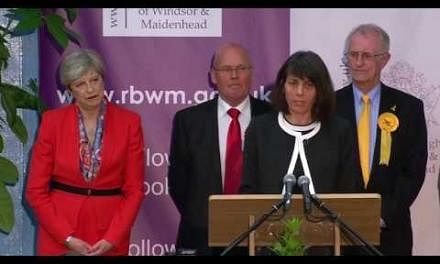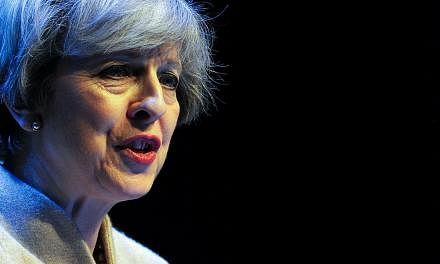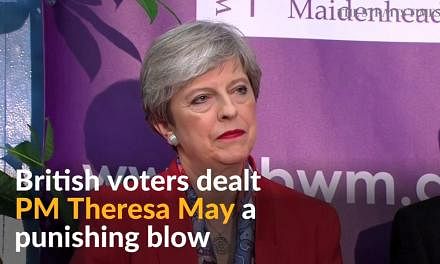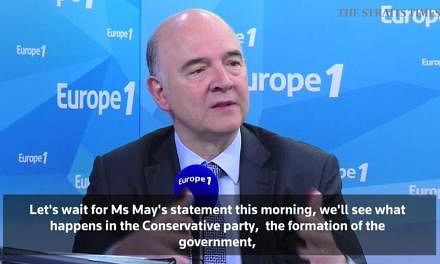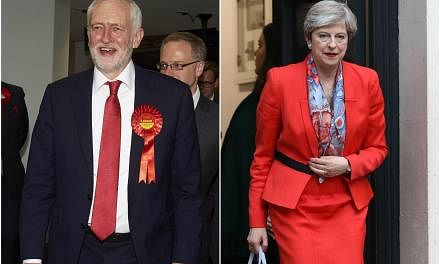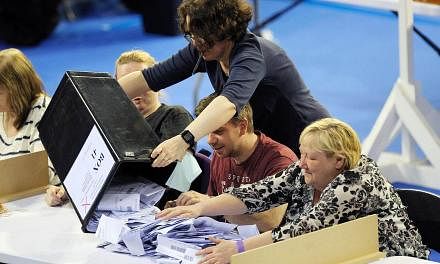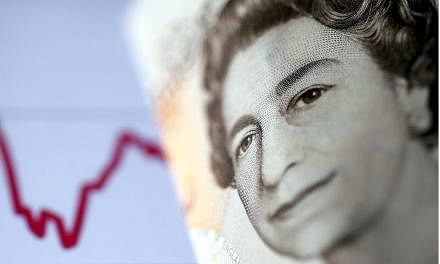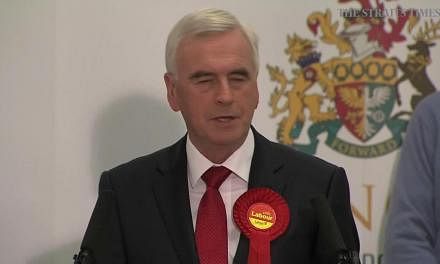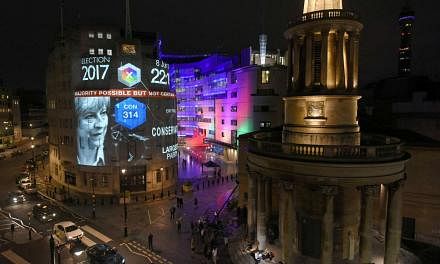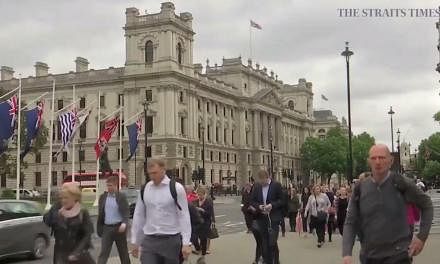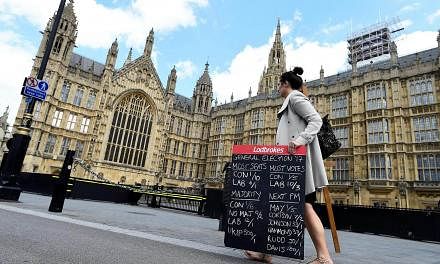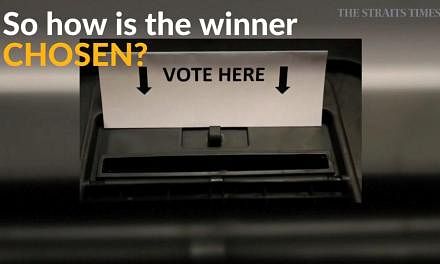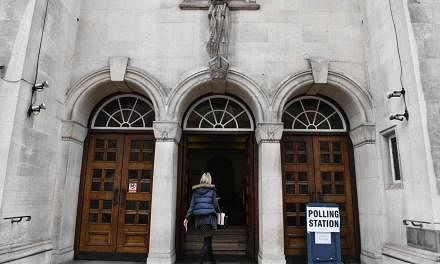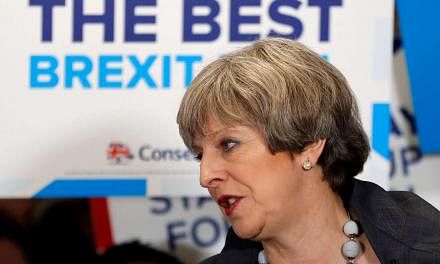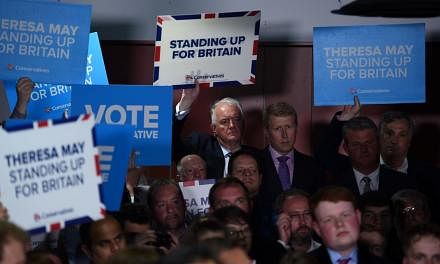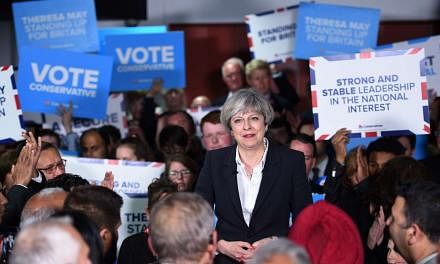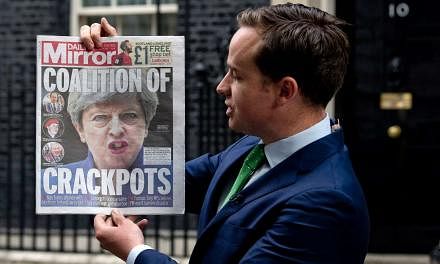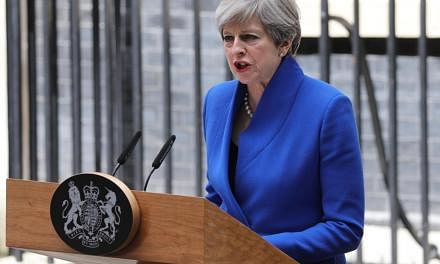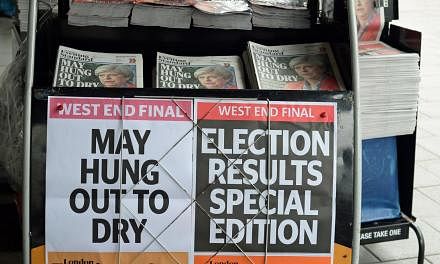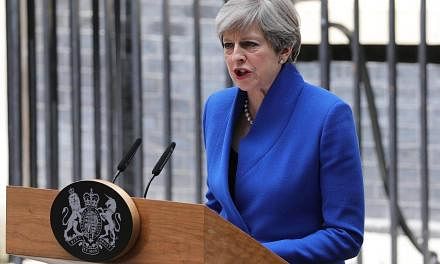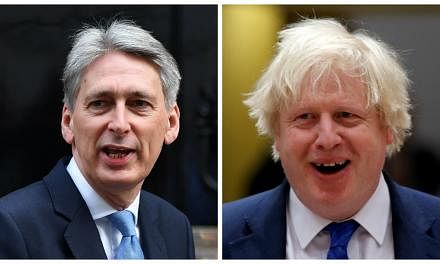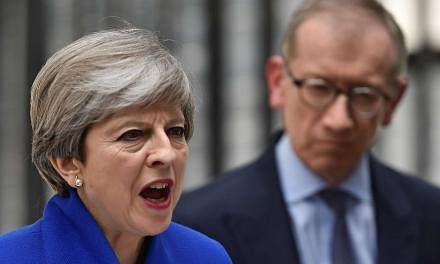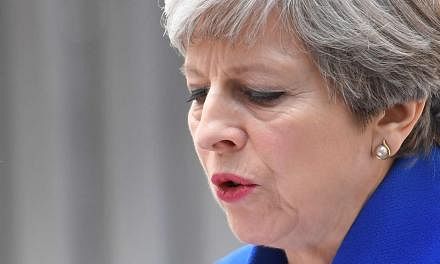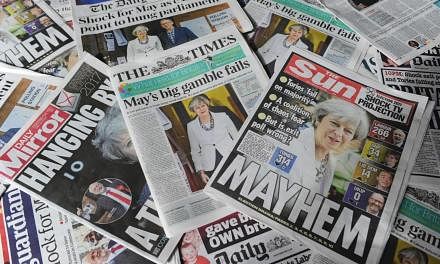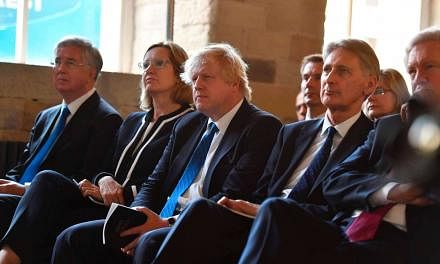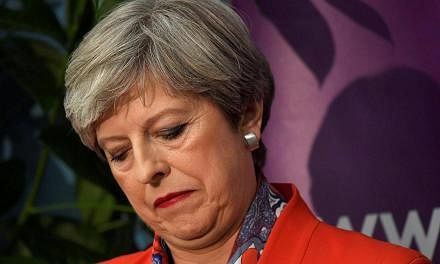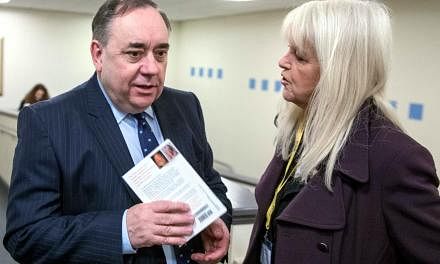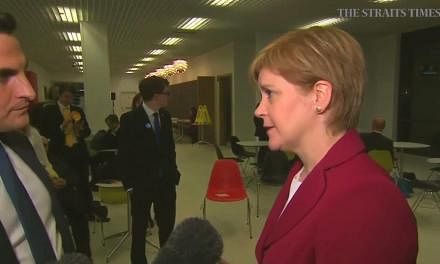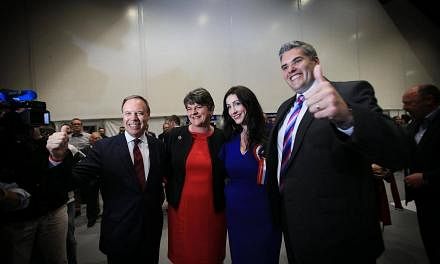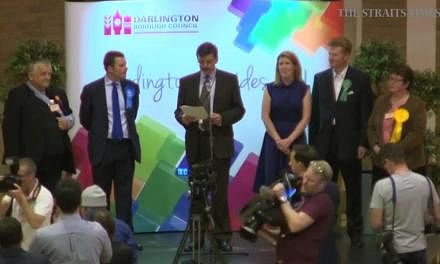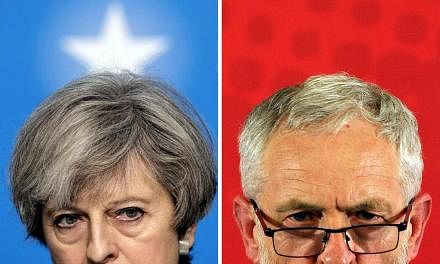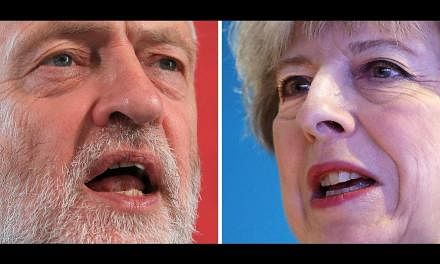LONDON • Most business leaders are dismayed at the political chaos unleashed by British Prime Minister Theresa May's decision to call a snap general election, which left her party without a parliamentary majority last week, but some are quietly hoping that it may lead to softer terms for Britain's exit from the European Union.
"Most people in the UK won't forgive Theresa May" for calling an early election, said Mr Martin Frost, chief executive of Cambridge Medical Robotics, a British company that is developing a robotic system for surgery. "On the marginally positive side, perhaps it means a softer Brexit."
Business optimism in the British economy plunged after the election. A survey of executives over the weekend showed 57 per cent are pessimistic about prospects for the next year, according to the Institute of Directors. That is higher than when Britain voted in June last year to leave the EU and 43 per cent of the executives were pessimistic, the business group said.
One of the biggest challenges for business leaders since the referendum has been the uncertainty over whether Britain would remain in the single market or fall out and face tighter immigration controls, said Mr Michael Garstka, managing partner of Bain & Company.
"From a business perspective, rather than providing clarity, the election outcome just extends the period of uncertainty," he said. "We might end up with a better outcome if it means a softer Brexit, but with more uncertainty."
Almost all medium-sized businesses want to maintain access to the single market and Customs union, according to a study by Harvard University's Kennedy School. Executives worry about increased compliance expenses that might come with a loss of common British and EU rules, said the study.
If Mrs May succeeds in forming a coalition, its slender working majority in Parliament would force her to be more practical and business- friendly on key negotiating points, such as a trade accord and the future of EU citizens working in Britain, said Mr Andy Palmer, chief executive of British carmaker Aston Martin.
Entrepreneurs in London's burgeoning fintech industry called the result largely positive because it would force a government rethink. Uncertainty around the next government and the possibility of another election may prompt venture capitalists to hit the pause button on new investments in British start-ups.
But online lenders and other fintech firms have been anxious that Mrs May's vow to pursue a hard Brexit would make it difficult to hire EU nationals and to expand operations on the continent via passporting, which now allows global banks with bases in London to provide services to the rest of the bloc.
Women's online retailer Boohoo.com, which just raised £50 million (S$88 million) to fund a warehouse, is now more confident it will be able to staff the site with temporary workers from the continent.
Its chairman Peter Williams said: "Some of the posturing ahead of negotiations has been too anti-European. We hire a large number of people in Europe to temporarily help in our UK warehouse. They work, pay taxes, contribute to the economy and then they go home again. We would find it difficult to operate without those people."
BLOOMBERG

